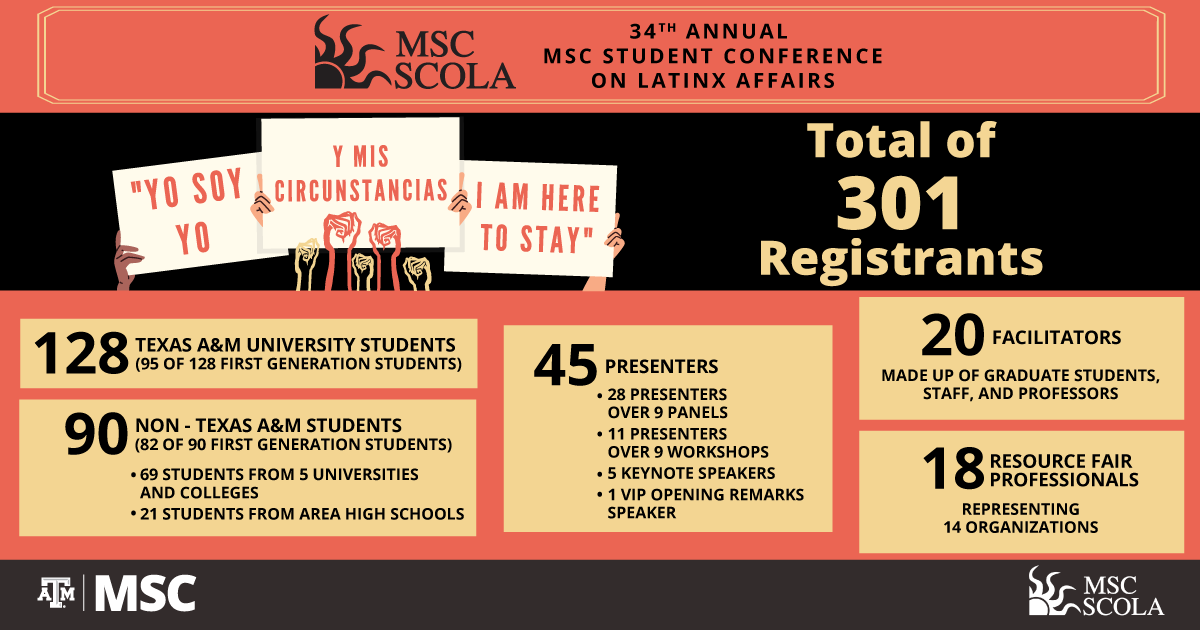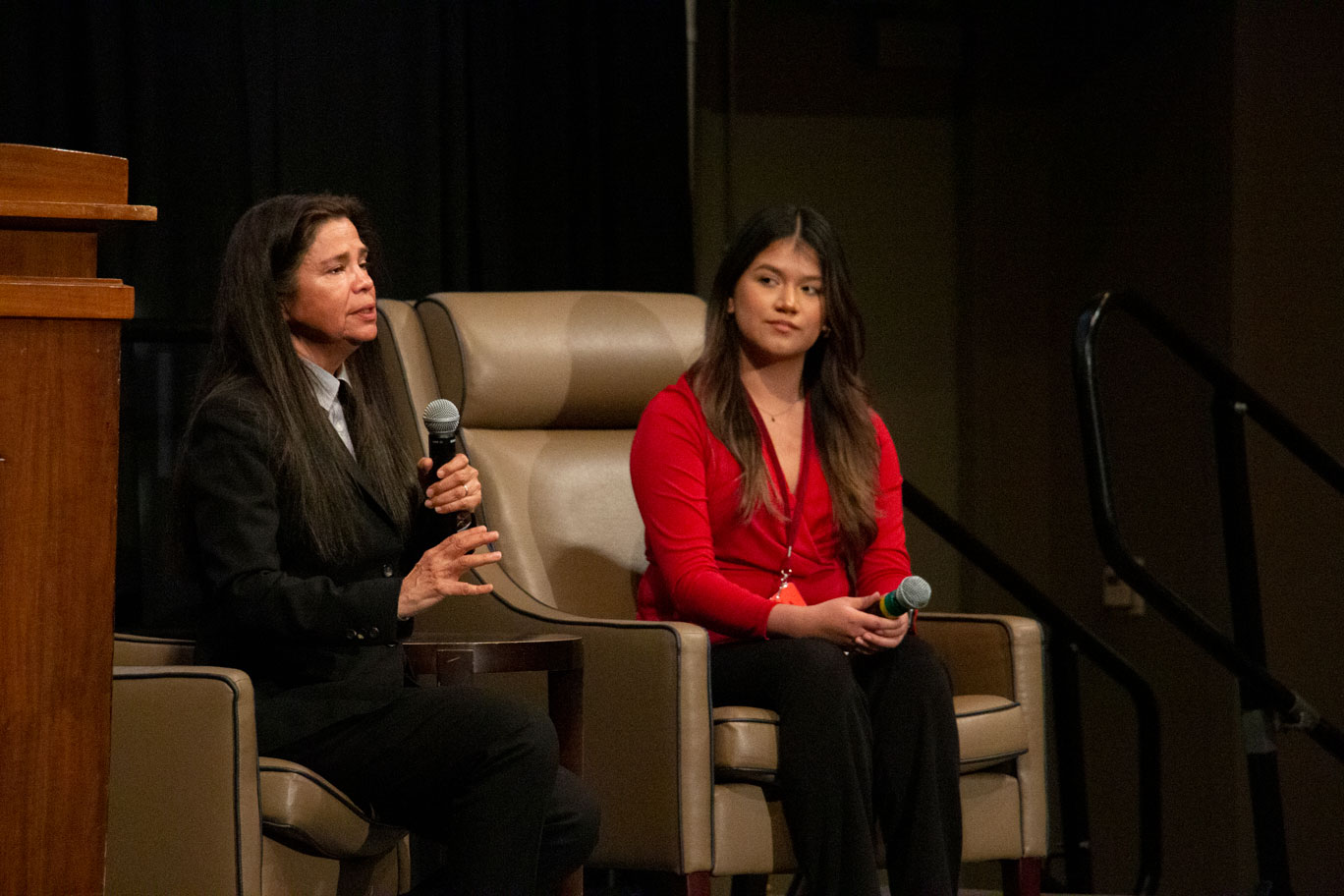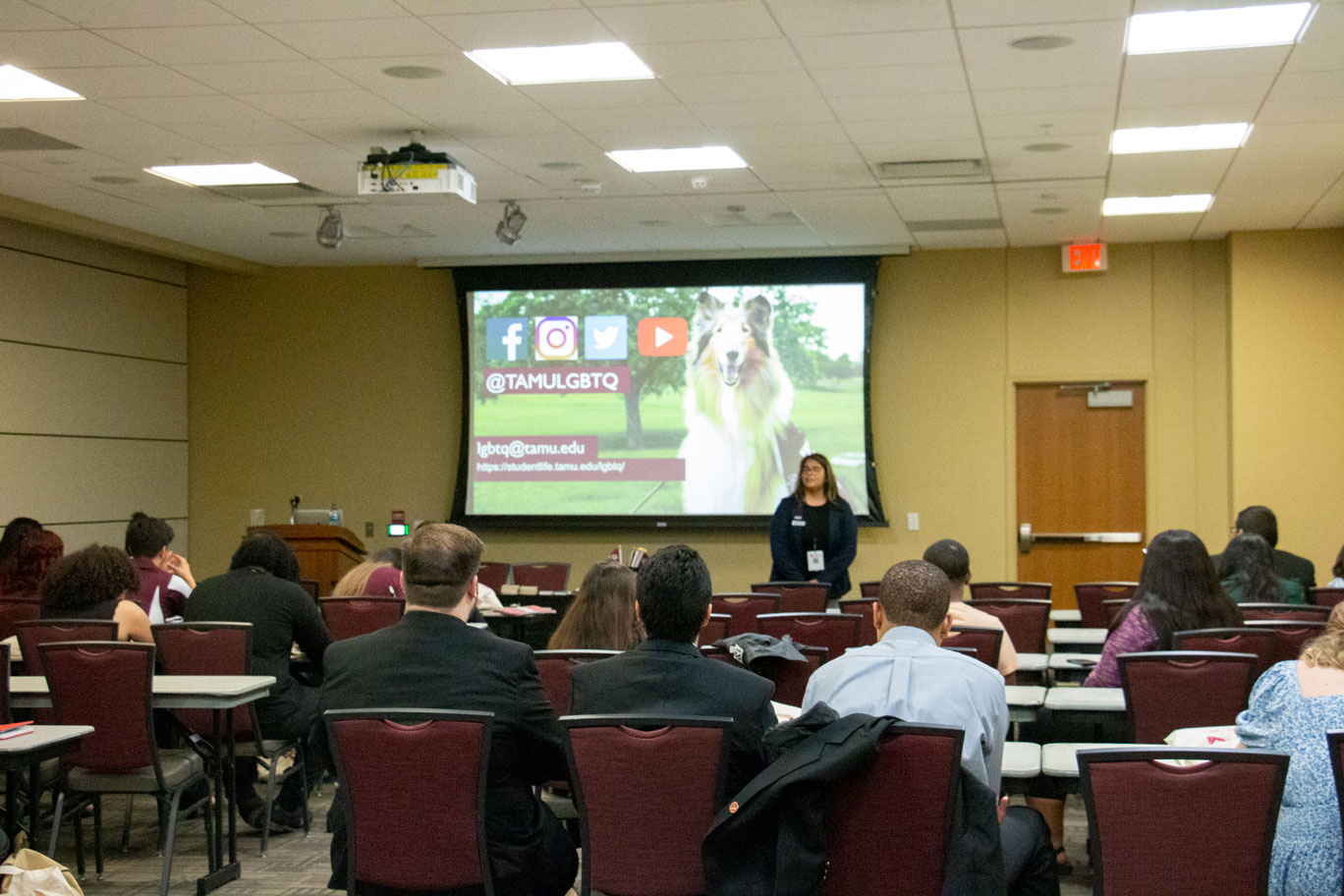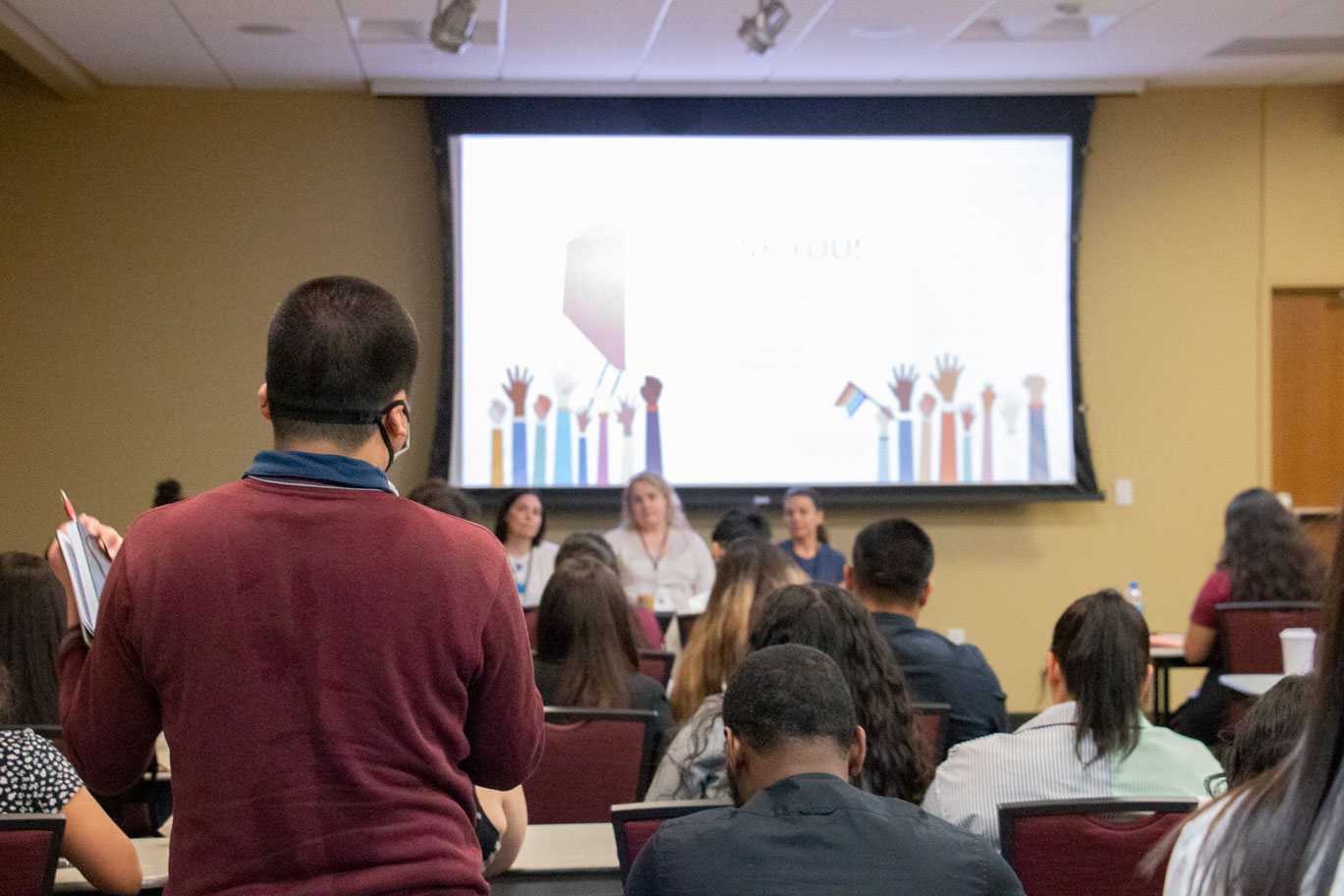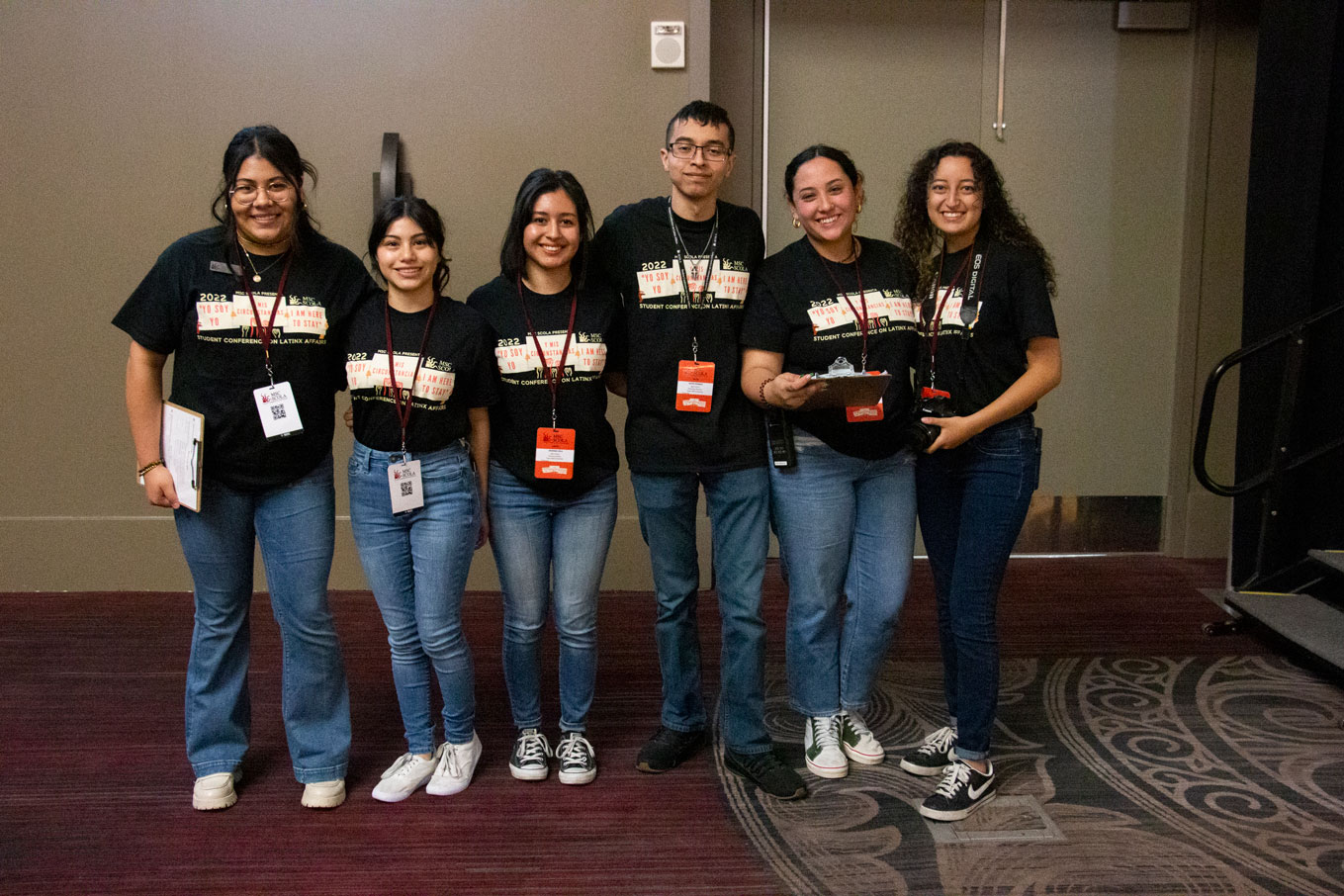“Yo Soy Yo Y Mis Circunstancias: I Am Here To Stay,” was the theme of the 34th annual MSC Student Conference On Latinx Affairs. The three-day blended conference provided attendees the opportunity to learn about issues affecting the Latinx community from top leaders involved in Latinx empowerment and education.
The March 31-April 2nd event saw representatives from government, academia, members of the media and leaders from the business sectors share knowledge and expertise during concurrent sessions.
Considered to be the largest student-led conference on Latinx affairs, this year’s event was focused on those attending college for the first time and hoped to inspire attendees to reflect on their own circumstances and that the past doesn’t define them.
“MSC SCOLA is a safe space for highlighting key issues faced by students of all backgrounds within the Latinx community,” said Daniella Hernandez, MSC SCOLA vice chair of administration. “The conference aims to find ways to combat these issues as well as provide our students with tools to move forth after the conference in their day-to-day lives.”
The conference is designed to be a place of empowerment as well as a place to create spaces for difficult dialogues for Latinx students.
“MSC SCOLA is a place for Latinx students to be heard. It is important for Latinx students at Texas A&M University to have a safe place to discuss important topics while having the opportunity to network and connect with others of similar backgrounds,” said Mariana De Hoyos, MSC SCOLA vice-chair of programs. “This conference is an opportunity for students to hear and see triumphs within the Latinx community and show them their dreams truly have no boundaries.”
Not only are the students of MSC SCOLA wanting to create a stimulating and transformational learning experience, everyone involved is hoping to foster healthy interaction leading to a life-changing experience.
“The 34th Annual MSC Student Conference On Latinx Affairs has always been academic space inviting students to take part in interactive learning, to engage in open dialogues,” said Dr. Sueli Rocha-Rojas, program advisor. “The conference has created a space where students can connect cultural and socially with others who have shared their experience.”
- Viola Canales, lecturer at Stanford Law School
- John E. Hurtado, interim vice chancellor and dean of the College of Engineering at Texas A&M University and interim agency director of the Texas A&M Engineering Experiment Station
- Carlos Andres Comez, a Colombian American poet, speaker, actor, and equity and inclusion strategist from New York City
- Felipe Hinojosa, associate professor of history at Texas A&M University; director for the Carlos H. Cantu Hispanic Education & Opportunity Endowment at Texas A&M
- Carlos Morton, professor of theater at the University of California, Santa Barbara
